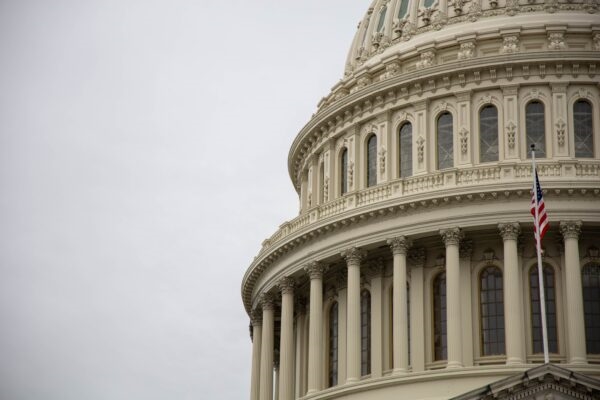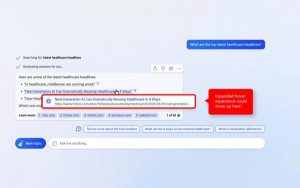
Gone are the days when companies could steer clear of politics. Employees and customers alike expect the brands they love to take a stand on social and political issues that are important to them. In recent years, tech leaders have begun reimagining their social impact strategies and leveraging their products and platforms to help people engage with their local communities, vote in elections, and take action on pressing socio-political issues.
San Francisco-based tech advocacy organization sf.citi hosted a conversation with social impact and public policy leaders at Instacart, Lyft, and Salesforce to explore how tech companies can combine civic engagement, social impact, and politics—and the benefits of doing so. Here’s what we learned.
CONNECTING YOUR COMPANY MISSION AND POLITICAL PARTICIPATION
For some tech companies, the link between their company mission and participation in the political process may not be immediately obvious. Casey Aden-Wansbury, Vice President of Public Policy and Government Affairs at Instacart, explains, however, that efforts to help people exercise their political voice are often a natural extension of core tech values—especially for companies like Instacart that are focused on democratizing access to services. Furthermore, tech companies are connected to diverse, far-reaching audiences, making them powerful levers of civic engagement and voter turnout.
Instacart’s vast network of shoppers, retailers, and employees is, in part, what motivated the company to launch a Civic Action Center ahead of the November 2020 election, said Aden-Wansbury. Offering important information about how to vote, voter registration deadlines, and candidate profiles, Instacart’s Civic Action Center received 46,000 visits in its first six weeks. For other companies looking to amplify their civic engagement activity around politics and elections, Aden-Wansbury advises them to leverage the strengths of their existing products and users.
As a tech company, thinking about the ways in which you can engage, I think the best solutions end up coming from looking at your product and your users and what the best match is for that interface.
—Casey Aden-Wansbury, Vice President of Public Policy and Government Affairs at Instacart
One company that has done just that is Lyft. Since 2018, Lyft has provided voters free and discounted rides to polling stations on Election Day through its Ride to Vote initiative. In 2020, Lyft expanded the program to offer discounted rides to the polls throughout the entire primary and the general election calendar. Mindful of safety concerns around COVID-19, Lyft also gave voters the option to use its network of bikes and scooters (in addition to its rideshare service) in select cities. For a company committed to removing transportation barriers, Lyft’s creative form of election engagement makes perfect sense.
Salesforce, meanwhile, views civic engagement as a core component of its adherence to stakeholder theory. Jim Green, Senior Vice President of Government Affairs and Public Policy at Salesforce, explained that Salesforce shareholders, customers, employees, and the communities in which Salesforce operates are all considered stakeholders in the company. As a result, said Green, “We have a very robust employee base that wants to be involved in the communities in which they live and work.” Case in point was Salesforce’s partnership with Power the Polls, which resulted in over 700 Salesforce employees volunteering as poll workers during the November 2020 election. To facilitate further civic engagement, Salesforce registered some 1,200 employees to vote in 2020 and gave its employees paid time off on Election Day.
MEETING THE CIVIC ENGAGEMENT MOMENT BEYOND ELECTION CYCLES
Though often associated with policy and the governing process, civic engagement extends well beyond elections. Adopting a much broader definition, Joan Hanawi, Social Impact Manager at Lyft, describes civic engagement as “participating in your local communities.” This, of course, can take many forms. In 2020, Instacart, Lyft, and Salesforce showcased the full force of civic engagement by nimbly adapting their strategies to meet the unique challenges presented by the COVID-19 pandemic.
- Salesforce Coordinates PPE Distribution. At the beginning of the pandemic, the United States and many other countries grappled with a shortage of personal protective equipment (PPE). Salesforce immediately stepped up to help. Leveraging its partnerships with potential PPE suppliers, Salesforce quickly mobilized an internal task force to secure and deliver millions of units of PPE to hospitals, governments, and organizations throughout the country.
- Instacart Tackles Food Insecurity. Shortly into the pandemic, Instacart launched its #GiveFromtheCart Challenge to support Feeding America and combat the pandemic-induced spike in food insecurity. Combined with a virtual food drive hosted during the fall of 2020, Instacart was able to donate 3 million meals to local food banks.
- Lyft Expands Its Jobs Access Program. With unemployment claims skyrocketing during the pandemic, Lyft expanded its Jobs Access Program in partnership with Goodwill and United Way. In 2020, Lyft launched a jobs access hub to allow users to either donate or request rides for job interviews, job trainings, or the first few weeks of work.
Salesforce, Instacart, and Lyft have developed powerful social impact ecosystems that permeate every corner of their business. At the same time, all three companies have ensured that their social impact programs can adapt and respond to crises at any given moment. When it comes to sustaining civic engagement outside of election cycles, this level of flexibility proves critical for meeting the needs of local communities in real time.
COMMUNICATING CLEARLY AND CROSS-FUNCTIONALLY WHEN ENGAGING IN POLITICS
Engaging in politics and elections can feel like a tenuous endeavor, especially in workplaces whose employee and customer base spans the political spectrum. That’s one of the reasons some companies shy away from civic engagement work altogether. And those that do mount civic engagement initiatives, especially around elections, often seek to do so in a non-partisan way.
To strike that delicate political balance, Jim Green of Salesforce emphasized the importance of precise internal communications in helping employees understand “the what, the why, and the how” of corporate civic engagement initiatives. Salesforce’s efforts in the November 2020 election, for example, focused strictly on voter participation rather than voter persuasion. Instacart, meanwhile, joined the Civic Alliance to signal its support of democracy and free, fair elections without aligning itself with a specific political party. (Lyft and Salesforce are also members of the Civic Alliance.)
On top of that, Salesforce, Instacart, and Lyft have all developed internal speaker series to connect their employees to thought leaders with diverse opinions on a range of topics—including elected officials and candidates.
It’s important that we bring in those diverse perspectives, so we can push each other and understand what the core asks of the community are.
—Joan Hanawi, Social Impact Manager at Lyft
Another theme these three tech and business leaders highlighted was the importance of cross-functional partnerships when scaling social impact and civic engagement efforts. Robust social impact programming requires buy-in from almost every arm of the business. Establishing strong internal alignment is, in fact, what allows companies like Instacart, Lyft, and Salesforce to develop crisis-response civic engagement initiatives. As Green points out, “Putting in that extra time to understand the different organizations internally will pay massive dividends over the mid to long term.”
. . .
What’s clear is that the corporate world is looking to expand its role in driving civil discourse. Though this is challenging in today’s volatile political landscape, the tech community reminds us that companies can engage in politics in a thoughtful way. More than that, they show us that civic engagement has the power to strengthen social impact, business, and society overall.
Digital & Social Articles on Business 2 Community
(52)
Report Post







